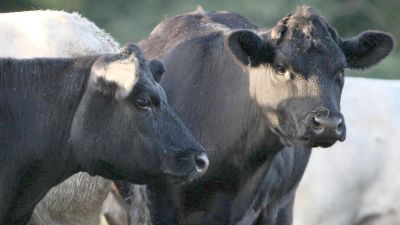Cow at Canterbury farm killed after testing positive for Bluetongue virus not seen in UK in 16 years

A cow has been killed after it tested positive for a virus not seen in the UK in 16 years.
The animal was detected to have Bluetongue virus at a farm in Canterbury, Kent.
Farmers are being urged to be vigilant and watch out for the virus which impacts certain livestock including cows, goats and sheep.
The disease is spread by midges and can cause pregnant livestock to have a miscarriage.
In the most severe cases, it can be fatal for animals but it does not affect people or food safety.
NFU President, Minette Batters said: “We have been informed by Defra of a single case of bluetongue on a farm in Kent over the weekend.
"A 10km Temporary Control Zone is now in place in the area, alongside surveillance testing and movement restrictions.
“The Chief Veterinary Officer has not confirmed an outbreak as this is only done once they can confirm infected midges are circulating.
"We are working to support our members in the area and urge farmers to remain vigilant for signs of the disease and get in contact with Defra or the APHA (Animal and Plant Health Agency) if you suspect a case.”
How is Bluetongue spread?
Bluetongue virus is mostly spread by certain species of biting midges known as Culicoides species.
Midges are infected with the virus when they bite an infected animal and then it bites an uninfected susceptible animal.
Once a midge has picked up the Bluetongue virus it will be a carrier for the rest of its life.
Midges are mainly active between April to November.
Infected pregnant animals can sometimes transmit the virus to their unborn offspring.
Once born, the infected offspring could act as a source of Bluetongue virus.
Advice for farmers and animal keepers:
Vaccinating your animals with a suitable authorised vaccine
Responsibly source livestock
Practising good biosecurity on your premises
Remaining vigilant
If you import animals, speak to your vet before you decide to import them.
On its website, DEFRA said: "Animals that test positive for Bluetongue may be culled or returned to the country of origin.
"Any animals which travelled in the same vehicle and are at risk of becoming infected may also be culled. No compensation will be paid for the culled animals.
"All other animals on the premises that are at risk of becoming infected will be placed under movement restrictions.
"These restrictions will apply until it’s confirmed that the disease has not spread. These restrictions may last several weeks."
Want a quick and expert briefing on the biggest news stories? Listen to our latest podcasts to find out What You Need To Know...
How to spot Bluetongue?
If you keep livestock, you must continue to keep a close watch for, and report, any suspicion of bluetongue disease in your animals.
Signs of Bluetongue in sheep include:
ulcers or sores in the mouth and nose
discharge from the eyes or nose and drooling from the mouth
red skin as a result of blood collecting beneath the surface
fever
lameness
breathing problems
Signs of Bluetongue in cattle and calves:
lethargy
crusty erosions around the nostrils and muzzle
redness of the mouth, eyes, nose
reddening of the skin above the hoof
nasal discharge
reddening and erosions on the teats
fever
milk drop
not eating
calves born small, weak, deformed or blind
death of calves within a few days of birth
miscarriage of pregnant livestock